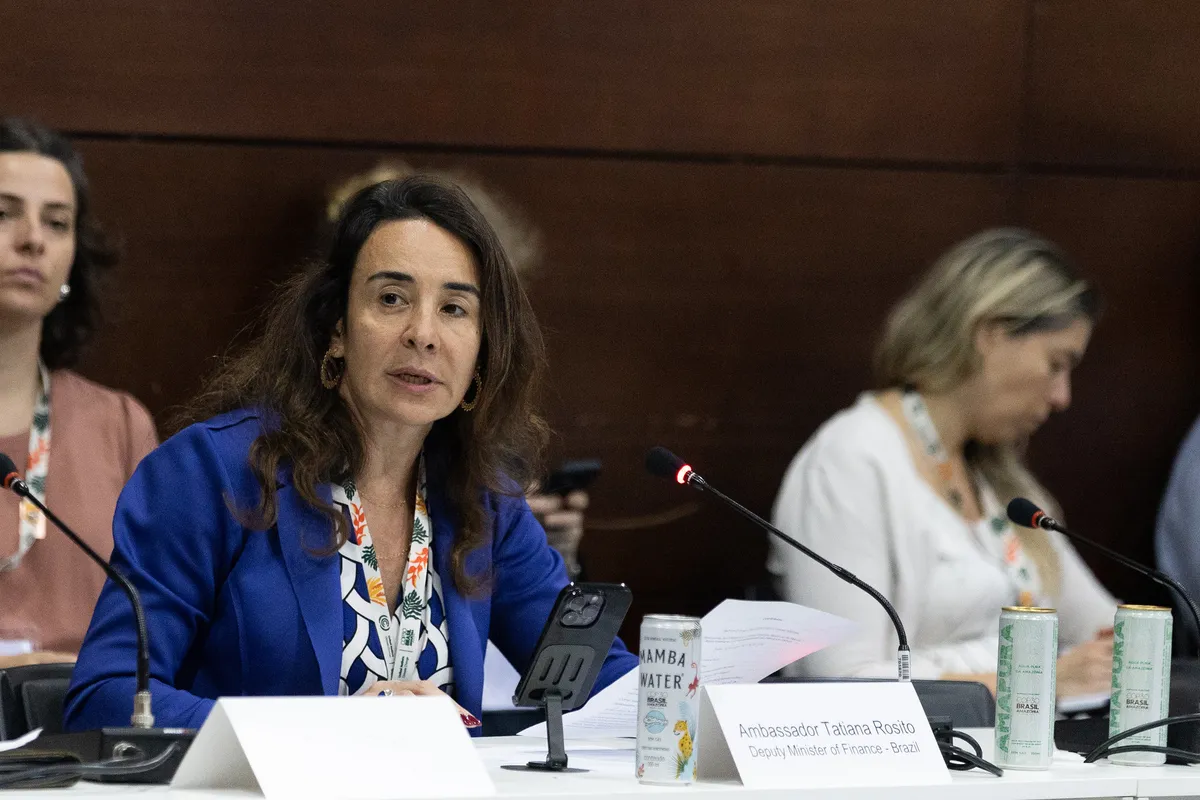
Brazil launched a Country Platform Hub this Saturday (15th) during the 2025 United Nations Climate Change Conference (COP30), aimed at sharing knowledge between governments on this mechanism aimed at attracting public and private investment in strategic projects related to the Green Agenda. This is one of the mechanisms foreseen in the final report of the COP Finance Ministers’ Circle.
“The climate finance community, which brings together multilateral banks, academic foundations, and primarily the private sector, believes that the country platform concept is a key vehicle for scaling up climate investment,” he said. value Ambassador Tatiana Rosito, Secretary of International Affairs, Department of the Treasury; “This is the legacy of the Brazilian Presidency (of COP 30) in its acceleration agenda,” he added.
The Country Platform (CP) brings together projects that align with each country’s strategy for decarbonization and the transition to a greener economy. National governments broker these projects with domestic and foreign investors. The aim is to attract investment in areas that tend to be innovative and large-scale and need more support.
Brazil launched the platform within the G20 last year during the country’s G20 Presidency. The platform, called the Brazilian Climate and Ecological Transformation Investment Platform (BIP), currently has 16 selected projects divided into three main areas (natural and bioeconomy, energy and industry, and mobility-based solutions) and has the potential to attract investments of USD 23 billion.
Projects will be selected by the secretariat of the platform hosted by the National Bank for Economic and Social Development (BNDES) and supported by the Green Climate Fund Preparation Program (GCF). The idea for the platform came from the Ministry of Finance, the Ministry of the Environment, the Ministry of Mines and Energy, and the Ministry of Industry and Commerce.
Rosito explains that Brazil’s platform is considered to be a reference for the world, as the first generation of CPs created by other countries in the past focused on donating resources to projects. However, these donations often went unfulfilled.
In the case of the Brazilian platform, the focus is on private investment, with the government and BNDES acting as facilitators to encourage investment in this initiative. “But the idea is more than just a matching mechanism. The idea is also to identify problems and bottlenecks that can provide public policy solutions,” he explains.
For example, the Brazilian government recognized the need to bring private equity funds to the platform as there are many innovative projects seeking to exploit untapped niche markets.
Rosito said this initiative will help strengthen Brazil’s capital markets. “So this is a means of coordination and facilitation by the state, but the purpose is to create and strengthen markets,” the ambassador emphasizes. “Brazil is leading the way in ecosystem-building models to finance sustainable development,” he added.
The idea for the hub was floated to train other countries that want to build their own platforms, with a focus on developing countries in the Global South, a priority for Brazil’s COP30 Presidency.
Coordination will take place through ministerial networks, including the COP30 Finance Ministers’ Circle, the Coalition of Finance Ministers for Climate Action (CFMCA), and Ministers from the Climate Vulnerable Forum-Vulnerable 20 Group (CVF-V20).
The hub will also have its own secretariat, which is expected to be established during 2026. Initial operations will be supported by a US$3.75 million fund.
This high-level launch took place this Saturday during COP30 through a joint announcement by Brazil, Uganda, CVF-V20 and other partners.
This is another acceleration agenda proposed by the Ministry of Finance within the scope of COP30.



